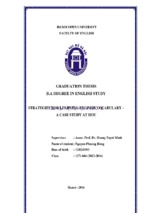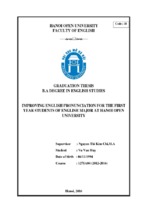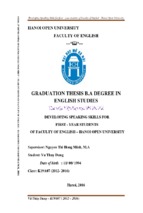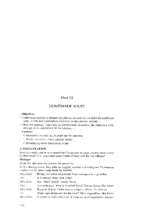Dictionary of
Economics
A & C Black 앫 London
www.acblack.com
First published in Great Britain in 2003
Reprinted 2006
A & C Black Publishers Ltd
38 Soho Square, London W1D 3HB
© P. H. Collin 2003
All rights reserved. No part of this publication may be reproduced
in any form or by any means without the permission of the publishers
A CIP record for this book is available from the British Library
eISBN-13: 978-1-4081-0221-3
Text Production and Proofreading
Heather Bateman, Katy McAdam
A & C Black uses paper produced with elemental chlorine-free pulp,
harvested from managed sustainable forests.
Text typeset by A & C Black
Printed in Italy by Legoprint
Preface
Economics is the basis of our daily lives, even if we do not always realise it. Whether
it is an explanation of how firms work, or people vote, or customers buy, or
governments subsidise, economists have examined evidence and produced theories
which can be checked against practice.
This book aims to cover the main aspects of the study of economics which students
will need to learn when studying for examinations at various levels. The book will
also be useful for the general reader who comes across these terms in the financial
pages of newspapers as well as in specialist magazines.
The dictionary gives succinct explanations of the 3,000 most frequently found terms.
It also covers the many abbreviations which are often used in writing on economic
subjects. Entries are also given for prominent economists, from Jeremy Bentham to
John Rawls, with short biographies and references to their theoretical works.
Where necessary cross-references are given so that the reader can refer to other
comparable entries.
I am grateful to the following for their valuable comments on the text: Barbara
Docherty, Lesley Brown and Jill Garner.
Specialist dictionaries
Dictionary of Accounting
0 7475 6991 6
Dictionary of Aviation
0 7475 7219 4
Dictionary of Banking and Finance
0 7136 7739 2
Dictionary of Business
0 7475 6980 0
Dictionary of Computing
0 7475 6622 4
Dictionary of Environment and Ecology
0 7475 7201 1
Dictionary of Human Resources and Personnel Management 0 7136 8142 X
Dictionary of ICT
0 7475 6990 8
Dictionary of Information and Library Management
0 7136 7591 8
Dictionary of Law
0 7475 6636 4
Dictionary of Leisure, Travel and Tourism
0 7475 7222 4
Dictionary of Marketing
0 7475 6621 6
Dictionary of Media Studies
0 7136 7593 4
Dictionary of Medical Terms
0 7136 7603 5
Dictionary of Military Terms
0 7475 7477 4
Dictionary of Nursing
0 7475 6634 8
Dictionary of Politics and Government
0 7475 7220 8
Dictionary of Science and Technology
0 7475 6620 8
Easier English™ titles
Easier English Basic Dictionary
0 7475 6644 5
Easier English Basic Synonyms
0 7475 6979 7
Easier English Dictionary: Handy Pocket Edition
0 7475 6625 9
Easier English Intermediate Dictionary
0 7475 6989 4
Easier English Student Dictionary
0 7475 6624 0
English Thesaurus for Students
1 9016 5931 3
Check Your English Vocabulary workbooks
Academic English
0 7475 6691 7
Business
0 7475 6626 7
Computing
1 9016 5928 3
Human Resources
0 7475 6997 5
Law
0 7136 7592 6
Leisure, Travel and Tourism
0 7475 6996 7
FCE +
0 7475 6981 9
IELTS
0 7136 7604 3
PET
0 7475 6627 5
TOEFL®
0 7475 6984 3
TOEIC
0 7136 7508 X
Visit our website for full details of all our books: www.acblack.com
A
A, AA, AAA noun letters indicating that a share or bond or bank has a
certain rating for reliability. The AAA rating (called the triple A rating) is
given by Standard & Poor’s or by Moody’s Investors Service, and indicates a
very high level of reliability for a corporate or municipal bond in the USA.
ability to pay theory noun the theory of taxation that the level of
taxation should be related to the taxpayer’s ability to pay. Taxpayers with
higher incomes pay tax at a higher rate than those on low incomes. This is the
basis of progressive taxation. Many taxes, such as VAT, fuel tax, or sales tax,
are not linked to the purchaser’s ability to pay and are therefore regressive
taxation.
abscissa noun the horizontal value on a graph. The vertical value is the
y-value or ordinate. Also called x-value (NOTE: The plural is abscissae or
abscissas.)
absolute advantage, absolute cost advantage noun a situation
in which a country, or sometimes a person or company, is more efficient at
producing something than its competitors (i.e. its output per input unit is
higher). This gives an advantage to established firms which can keep costs
low in comparison to new entrants.
absolute value noun the size or value of a number regardless of its sign.
The absolute value of –62.34 is 62.34.
absorption costing, absorption pricing noun the fixing of the
price of a product to include both the direct costs of production and a part of
the overhead costs which are absorbed as well. Absorption costing follows
three stages: allocation of actual overhead costs directly to the cost centre to
which they relate; apportionment, by which common overhead costs are
divided between various cost centres in proportion to the estimated benefit to
each cost centre; absorption, by which the total costs are charged to each unit
of production.
ACAS abbreviation Advisory, Conciliation and Arbitration Service
accelerated depreciation noun a system of depreciation which
reduces the value of assets at a high rate in the early years to encourage
companies to invest in new equipment, because of the tax advantages. This
applied in the UK until 1984: companies could depreciate new equipment at
100% in the first year. The system still applies in the USA where a 5-year tax
acceleration principle
2
depreciation can be applied (instead of the usual 20-years) to certain types of
equipment.
acceleration principle noun same as accelerator principle
accelerator coefficient noun a calculation by which the value of an
investment increases with an increase in output
accelerator-multiplier model noun an economic model which
incorporates both the accelerator and multiplier effect: if government
investment expenditure increases this will lead to an increase in consumer
demand which itself leads to an increase in output which in turn will lead to a
further increase in investment. Also called multiplier-accelerator model
accelerator principle noun the principle that a change in consumer
demand will have an even greater percentage change on the demand for
capital goods, so that firms produce more of a commodity when demand is
rising and less when demand is falling. This has the effect of exaggerating
booms and depressions in the economy. Also called acceleration
principle
acceptance noun the act of signing a bill of exchange to show that you
agree to pay it
acceptance bank noun US same as accepting house
accepting house, acceptance house noun a firm, usually a
merchant bank, which accepts bills of exchange (i.e. promises to pay them)
and is paid a commission for this
accommodating
monetary policy, accommodatory
monetary policy noun a policy which allows money supply to increase as
the demand for money increases
account noun STOCK EXCHANGE the period during which shares are traded
for credit, and at the end of which the shares bought must be paid for. On the
London Stock Exchange, the account period is three business days from the
day of trade. (NOTE: On the London Stock Exchange, there are twenty-four
accounts during the year, each running usually for ten working days.)
account day noun the day on which shares which have been bought must
be paid for. On the London Stock Exchange the account period is three
business days from the day of trade. Also called settlement day
accounting entity noun same as accounting unit
accounting period noun the period usually covered by a company’s
accounts. The balance sheet shows the state of the company’s affairs at the
end of the accounting period, while the profit-and-loss account shows the
changes which have taken place since the end of the previous period.
accounting unit noun any unit which takes part in financial transactions
which are recorded in a set of accounts. It can be a department, a sole trader, a
Plc or some other unit.
3
advance
accruals, accrued expenses, accrued liabilities plural noun
liabilities which are recorded, although payment has not yet been made (this
refers to liabilities such as rent, rates, etc.)
acid test ratio noun same as liquidity ratio
acquisition noun the takeover of a company. The results and cash flows
of the acquired company are brought into the group accounts only from the
date of acquisition: the figures for the previous period for the reporting entity
should not be adjusted. The difference between the fair value of the net
identifiable assets acquired and the fair value of the purchase consideration is
goodwill.
ACT abbreviation Advance Corporation Tax
activity indicator noun an indicator such as industrial production,
capacity utilisation, and volume of retail sales, which shows at what stage of
the business cycle the economy is
activity rate noun the percentage of the population of working age who
are actually in active employment. Also called economic activity rate,
labour force participation rate
actual growth noun the final actual result of growth in the
Harrod-Domar model
actuary noun a person employed by an insurance company or other
organisation to calculate the risk involved in an insurance, and therefore the
premiums payable by persons taking out insurance
adaptive expectations noun the theory that behaviour changes
because of what people expect will happen: so workers ask for more pay
because they believe inflation will rise, and this increase in pay actually fuels
an increase in inflation; similarly economists will exaggerate their inflation
forecasts to take into account errors they made in previous forecasts. Such
adaptive expectations always exaggerate upward or downward trends. 쏡
expectations lag
ADB abbreviation 1. African Development Bank 2. Asian Development
Bank
adjustable peg regime, adjustable peg system noun a system in
which a currency is pegged to another, but with the possibility of adjusting the
exchange rate from time to time
administered price noun US same as recommended retail price
administration noun the appointment by a court of a person to manage
the affairs of a company which is in difficulties
ADR abbreviation American depositary receipt
ad valorem tax noun a tax (such as VAT) which is calculated according
to the value of the goods or services taxed. Compare specific tax
advance noun an amount of money paid as a loan or as a part of a payment
to be made later 쐽 adjective paid as a loan or as a part of a payment to be
Advance Corporation Tax
4
made later 쐽 verb to pay an amount of money to someone as a loan or as a part
of a payment to be made later
Advance Corporation Tax noun a tax (abolished in 1999) which
was paid by a company in advance of its main corporation tax payments. It
was paid when dividends were paid to shareholders and was deducted from
the main tax payment when that fell due. It appeared on the tax voucher
attached to a dividend warrant. Abbreviation ACT
adverse selection noun the theory that bad quality goods will be more
likely to be sold than good, because some traders want to get rid of products
and buyers are not capable of judging if the quality or price is too low. This
applies in many commercial spheres, such as the stock market or insurance, as
well as in general trading. Three factors come into play: (i) the variable quality
of similar products on the market; (ii) the fact that buyers and sellers do not
possess the same information about the product (usually the seller knows more
than the buyer); (iii) sellers are more likely to want to get rid of bad quality
products than good quality products. Also called lemon problem
adverse supply shock noun shock caused to an economy by a
sudden stoppage in the supply of raw materials or other inputs. An example
would be the reduction in supply of oil caused by a war.
advertising noun the business of announcing that something is for sale or
of trying to persuade customers to buy a product or service. Heavy advertising
will stimulate sales, but the cost will be borne eventually by the customer.
Advisory, Conciliation and Arbitration Service noun a
government service founded in 1974 which offers facilities for companies and
representatives of their workforce to meet and try to solve disputes about
matters such as employees’ rights or union recognition. Abbreviation ACAS
AE abbreviation aggregate expenditure
African Development Bank noun a bank set up by African countries
to provide long-term loans to help agricultural development and improvement
of the infrastructure. The bank now has non-African members. Abbreviation
ADB
age-earnings profile noun a graph showing the earnings of workers at
different ages and in different industries
agency shop noun US a contract arrangement making it mandatory for
workers who refuse to join a union to pay the union a fee
agent noun 1. a person who represents a company or another person in an
area 2. US the chief local official of a trade union
agglomeration economies plural noun economies which firms
achieve by being located in large urban areas
aggregate concentration noun the proportion of production which
is in the hands of a few large companies
5
American Depositary Receipt
aggregate demand noun the total demand for goods and services from
all sectors of the economy (from individuals, companies, the government and
exporters) during a given period
aggregate demand curve noun a curve showing aggregate demand
at all price levels, from a small demand at high prices to a large demand for
lower-priced goods and services
aggregate expenditure noun the total domestic expenditure during a
given period divided according to four sectors: households (consumer
expenditure), businesses (investment expenditure), government expenditure
and foreign purchasers (i.e. exports minus imports). It forms the gross
domestic product. Abbreviation AE
aggregate output noun a method of calculating the national income by
adding the total value added at each stage of production in manufacturing
industry, service industry and agriculture, together with property income from
abroad
aggregate supply noun the total production of goods and services
available to meet the aggregate demand during a given period
aggregate supply curve noun a curve showing the quantity supplied
at each price level; in the long term, supply pushes up prices
AGM abbreviation Annual General Meeting
agricultural sector noun the sector of an economy formed by
agriculture, forestry and fishing
aid noun help given to a business or region by a government
AIM abbreviation Alternative Investment Market
alienation noun worker dissatisfaction, the lack of a sense of fulfilment
when a worker cannot see any positive result of his or her work
allocative efficiency noun the action of satisfying as far as is possible
customer demands for goods and services by pricing them at a price which is
near to the production cost while still allowing a margin to the producer. If a
market is allocatively efficient it produces the right amount of goods at the
right prices for the right customers.
Alternative Investment Market noun a London stock market,
regulated by the London Stock Exchange, dealing in shares in smaller
companies which are not listed on the main London Stock Exchange. The
AIM is a way in which smaller companies can sell shares to the investing
public without going to the expense of obtaining a full share listing.
Abbreviation AIM
alternative technology noun the use of methods to produce energy
which are different and less polluting than the usual ways (i.e. using wind
power, tidal power or solar power, as opposed to traditional or nuclear power)
American Depositary Receipt noun a document issued by an
American bank to US citizens, making them unregistered shareholders of
companies in foreign countries. The document allows them to receive
amortisation
6
dividends from their investments, and ADRs can themselves be bought or
sold. Buying and selling ADRs is easier for American investors than buying or
selling the actual shares themselves, as it avoids stamp duty and can be carried
out in dollars without incurring exchange costs. Abbreviation ADR
amortisation, amortising noun 1. the repayment of the principal of a
loan or putting money aside regularly over a period of time in order to repay it
in due course 2. the act of depreciating or writing down the capital value of an
asset over a period of time in a company’s accounts
analysis of variance noun a method of testing if real differences exist
between sections of a population which is being sampled
Andean Pact noun a trading agreement signed in 1969 and now formed
of Bolivia, Columbia. Ecuador, Peru and Venezuela. Tariffs between the
member countries are reduced and a system of preferences towards other
members of the group introduced.
annual allowance noun an allowance against tax which is calculated
each year, such as annual depreciation of assets
Annual General Meeting noun an annual meeting of all shareholders
of a company, when the company’s financial situation is presented by and
discussed with the directors, when the accounts for the past year are approved
and when dividends are declared and audited. Abbreviation AGM (NOTE: The
US term is annual meeting or annual stockholders’ meeting.)
Annual Percentage Rate noun a rate of interest (such as on a
hire-purchase agreement) shown on an annual compound basis, including fees
and charges. As hire purchase agreements quote a flat rate of interest covering
the whole amount borrowed or a monthly repayment figure, the Consumer
Credit Act, 1974, forces lenders to show the APR on documentation
concerning hire purchase agreements, so as to give an accurate figure of the
real rate of interest as opposed to the nominal rate. The APR includes various
fees charged (such as the valuation of a house for mortgage); it may also vary
according to the sum borrowed – a credit card company will quote a lower
APR if the borrower’s credit limit is low. Abbreviation APR
annual report and accounts noun the report from the directors on
the company’s financial situation at the end of a year, together with the
balance sheet, profit and loss account, statement of source and application of
funds, and the auditor’s report, all prepared for the shareholders of the
company each year
annuity noun an amount of money paid each year to a retired person,
usually in return for a lump-sum payment. The value of the annuity depends
on how long the person lives, as it usually cannot be passed on to another
person. Annuities are fixed payments, and lose their value with inflation,
whereas a pension can be index-linked. When people retire, they are required
by law to purchase a compulsory purchase annuity with the funds accumulated
in their pension fund. This gives them a taxable income for the rest of their
7
a priori
life, but usually it is a fixed income which does not change with inflation.
Also called perpetuity
anticipated inflation noun the rate of inflation which most people
think will exist at some time in the future
anti-dumping action noun action which a country takes to protect
itself against dumping
anti-dumping duty noun a tax imposed by a country on imported
goods, to increase their price to a position where they do not offer unfair
competition to locally-produced goods, especially where the price of the
goods imported includes a subsidy from the government in the country of
origin. Also called countervailing duty
anti-globalisation movement noun an umbrella organisation for
several hundred groups of people with different aims: preservation of natural
resources, anti-exploitation of native peoples, etc. Unfortunately, the
movement also contains extreme left-wing groups who use the movement as a
cover for extremist and violent protests. Abbreviation AGM
anti-trust laws, legislation plural noun laws in the USA which
prevent the formation of monopolies or price fixing and so encourage
competition
APACS noun an organisation set up in 1985 by British banks and building
societies to manage the networks by which money is transferred between bank
accounts on behalf of customers (CHAPS and BACS). Full form
Association for Payment Clearing Services
APC abbreviation average propensity to consume
APM abbreviation average propensity to import
APP abbreviation average physical product
applied economics noun the application of economic theories to the
real world, formulated by economists as advice to planners
appreciation noun the increase in value of an asset. Also called capital
appreciation
appropriate technology noun technology which is suited to the local
environment, usually involving skills or materials which are easily available
locally. In many parts of world, devices to help the local population cultivate
the land can be made out of simple pipes or pieces of metal. Expensive
tractors may not only be unsuitable for the terrain involved, but also use fuel
which costs more than the crops produced.
appropriation account noun a part of a profit and loss account which
shows how each part of the profit has been dealt with (such as how much has
been given to the shareholders as dividends, how much is being put into the
reserves or what proportion of the profits comes from subsidiary companies)
APR abbreviation Annual Percentage Rate
a priori adverb on the basis of ideas or assumptions, not of real examples
APS
8
APS abbreviation average propensity to save
arbitrage noun the making of a profit from the difference in value of
various assets. Means include: selling foreign currencies or commodities on
one market and buying on another at almost the same time to profit from
different exchange rates; buying currencies forward and selling them forward
at a later date, to benefit from a difference in prices; buying a security and
selling another security to the same buyer with the intention of forcing up the
value of both securities.
arbitrageur, arbitrager noun a person whose business is risk arbitrage.
Arbitrageurs buy shares in companies which are potential takeover targets,
either to force up the price of the shares before the takeover bid, or simply as a
position while waiting for the takeover bid to take place. They also sell shares
in the company which is expected to make the takeover bid, since one of the
consequences of a takeover bid is usually that the price of the target company
rises while that of the bidding company falls. Arbitrageurs may then sell the
shares in the target company at a profit, either to one of the parties making the
takeover bid, or back to the company itself.
arbitration noun the settlement of a dispute by the two parties concerned,
using an arbitrator (an outside person chosen by both sides)
arc elasticity noun a reasonably accurate method of measuring the
proportional change in one variable compared with a proportionate change in
another
arithmetic average noun a number calculated by adding together
several figures and dividing by the number of figures added
arithmetic progression noun a sequence of numbers with a constant
difference between them, such as 2, 5, 8, 11. Compare geometric
progression
Arrow, Kenneth (1921–) American economist, winner of the Nobel
Prize for Economics in 1972, particularly interested in the questions of
decision-making. He showed that a series of acceptable choices by individuals
in a group will inevitably lead to the choice of one individual being dominant.
Arrow’s impossibility theorem noun the theory that in a group of
two or more it may happen that it becomes impossible to get a result from
majority voting which accurately reflects the preferences of individuals in the
group. Either the result goes against the majority preference or it is possible
for a single individual to make the final decision.
articles of partnership plural noun same as partnership
agreement
ASEAN abbreviation Association of Southeast Asian Nations
A shares plural noun ordinary shares with limited voting rights or no right
to vote at all. A company may be set up with two classes of share: A shares,
which are available to the general investor, and B shares which are only
bought by certain individuals, such as the founder and his or her family. Such
division of shares is becoming less usual nowadays.
9
auditor
Asian Development Bank noun a bank set up by various Asian
countries, with other outside members, to assist countries in the region with
money and technical advice. Abbreviation ADB
asset noun a thing which belongs to company or person, and which has a
value. A company’s balance sheet will show assets in various forms such as
current assets, fixed assets and intangible assets. An individual’s assets will
include items such as his or her house, car, and clothes.
asset-backed securities plural noun shares which are backed by the
security of assets
assets revaluation reserve noun an amount of money from profits
not paid as dividend, but kept back by a company to be used when the
company’s assets are revalued
asset stripping noun the buying of a company at a lower price than its
asset value, and then selling its assets
assisted area noun area of a country which is given aid by the
government to under European Union legislation. They have unemployment
levels higher than the norm in the European Union and the aid is aimed at
increasing employment are given to companies, sole traders or partnerships
for capital expenditure (not general jobs which otherwise would be at risk.
Currently the areas are being reduced because Britain’s unemployment level is
lower than the European Union average.
Association of Southeast Asian Nations noun an organisation
formed originally in 1967 to promote economic growth, social and
educational development and general stability in Southeast Asia. The current
members are: Brunei, Indonesia, Laos, Malaysia, Myanmar, Philippines,
Singapore, Thailand and Vietnam. Abbreviation ASEAN
assurance noun an agreement that in return for regular payments, a
company will pay compensation for loss of life, or will make a payment if the
insured person lives to a certain age. Also called life assurance, life
insurance
asymmetric information noun a situation which exists in all
countries where all the consumers, suppliers and producers do not have the
same information on which to base their decisions
ATM abbreviation automated telling machine
atomistic competition noun same as perfect competition
auction noun a method of selling goods in which people offer bids, and the
item is sold to the person who makes the highest offer. Another form is the
Dutch auction where the seller names a high price and gradually reduces it
until someone makes a bid. 쐽 verb to sell goods at auction
audit noun the examination of the books and accounts of a company 쐽 verb
to examine the books and accounts of a company
auditor noun a person, firm or partnership which audits books and
accounts. Audits can be external, that is independent from the company, or
auditors’ qualification
10
internal, that is members of staff who examine a company’s internal controls.
External auditors are appointed by the company’s directors and voted by the
AGM. In the USA, audited accounts are only required by corporations which
are registered with the SEC, but in the UK all limited companies must provide
audited annual accounts if they exceed the size criteria for audit exemption.
auditors’ qualification noun a form of words in a report from the
auditors of a company’s accounts, stating that in their opinion the accounts are
not a true reflection of the company’s financial position and profit or loss for
the year. Also called qualification of accounts
auditors’ report noun a report written by a company’s auditors after
they have examined the accounts of the company (if they are satisfied, the
report certifies that, in the opinion of the auditors, the accounts give a true and
fair view of the company’s financial position)
Austrian school noun a school of economic study at the University of
Vienna during the later part of the 19th century under Menger, which
emphasised the concept of utility – i.e. the pleasure derived by the consumer
from the product, as opposed to the value concepts of production and supply.
Later Austrian economists developed the theory of interest and capital.
authorised capital noun the maximum capital which is permitted by a
company’s articles of association
autocorrelation noun same as serial correlation
automated teller machine noun a machine which gives out cash
when a special card is inserted and special instructions given. Abbreviation
ATM
automatic stabilisers plural noun changes in government spending or
in government tax revenue which are not caused by policy decisions, but by
events such as the rise in unemployment during a recession which increases
government spending on benefits, and at the same time decreases taxation
revenue. Also called built-in stabilisers
automation noun the use of machines to do work with very little
supervision by people
autonomous consumption, autonomous expenditure noun
national consumption expenditure which does not vary with national income,
but which represents expenditure which is necessary to maintain a basic
standard of living even when personal incomes are zero. It is not related to the
GDP, but can have an effect on the economy.
autonomous investment noun investment which is not related to
increases or decreases in national income or in ouput, but which may be due to
factors such as changes in government policy or the response to new
inventions
AVC abbreviation average variable cost
11
average variable cost
average noun the sharing of the cost of damage or loss of a ship between
the insurers and the owners 쐽 adjective representing the total number divided
by the number of units 쐽 verb to reach or calculate an average figure
average cost noun the total cost of production divided by the number of
units produced
average cost pricing noun the setting of a price which is equivalent to
the average cost of the product, so covering marginal costs and fixed costs and
allowing the producer to break even
average fixed costs plural noun costs calculated by dividing the total
fixed costs by the number of units produced. The cost per unit falls with the
number of units produced.
average income per capita noun same as per capita income
average physical product, average product noun the average
output per unit of variable input, such as the average output per worker.
Abbreviation APP
average price level noun the average price of a particular product in a
country at a particular time. Also called price level
average product noun same as average physical product
average propensity to consume noun the proportion of total
disposable income (per individual, per household or national) which is spent.
Abbreviation APC
average propensity to import noun the proportion of total
disposable income (per individual, per household or national) which is spent
on imports. Abbreviation APM
average propensity to save noun the proportion of total disposable
income (per individual, per household or national) which represents income
used for savings as opposed to expenditure. Abbreviation APS
average rate of tax noun a figure calculated by dividing the total
income tax paid by a person by his or her total income. Compare marginal
rate of tax
average revenue noun the revenue from one unit of product sold,
calculated as the total revenue divided by the number of units sold. It is the
same as the average price.
average revenue product noun the revenue derived from each unit
of variable input
average total cost noun the total cost per unit, calculated by dividing
the total costs by the number of units produced. It is the sum of average fixed
cost and average variable cost.
average variable cost noun the variable cost per unit, calculated by
dividing the variable costs by the number of units produced. Initially the cost
falls with the number of units produced but then rises as more units are
produced – it forms a U-shaped curve. Abbreviation AVC
avoidable cost
12
avoidable cost noun same as prime cost
axiom noun a basic assumption which forms a theory; normally axioms
cannot be proved by must be taken on trust
axis noun one of the vertical (y-axis) or horizontal (x-axis) lines which join
at zero and against which a graph is plotted
B
back door noun financing by the Bank of England which increases money
supply by selling Treasury bills. This is opposed to front door where discount
houses which run short of cash ask the Bank to make them short-term loans
which it does at a high interest rate.
back-to-back loan noun a loan from one company to another in one
currency arranged against a loan from the second company to the first in
another currency. Back-to-back loans are used by international companies to
get round exchange controls. Also called parallel loan
backwardation noun the difference between the spot and futures prices,
as when the spot price of a commodity or currency is higher than the futures
price (NOTE: The opposite is forwardation.)
backward-bending supply curve noun a curve which shows that
when the price of goods or services rises, so the quantity offered for sale falls.
Also called backward-sloping supply curve, labour supply curve
backward integration noun a situation in which a company joins with
another which is at an earlier stage in the production or distribution line, as
when a supermarket purchases a milk company. Also called vertical
integration (NOTE: The opposite is forward integration.)
backward-sloping labour supply curve noun same as
backward-bending supply curve
BACS abbreviation Bankers Automated Clearing Services
bad debt noun a debt which will never be paid (usually because the debtor
has gone out of business) and which has to be written off in the accounts
bad debt provision noun money put aside in accounts to cover
potential bad debts, which are likely to have to be written off. The bad debt
provision is deducted from trade debtors for balance sheet presentation. The
change in the provision from one year to the next together with any bad debts
written off is the charge for bad debts in the profit and loss account.
bad money drives out good Gresham’s law, that where two forms
of money with the same denomination exist in the same market, the form with
the higher metal value will be driven out of circulation when people hoard it
and use the lower-rated form to spend (as when paper money and coins of the
same denomination exist in the same market)
Bagehot, Walter
14
Bagehot, Walter (1826–1877) British economist and political
theorist who wrote in particular on the money markets and the nature of
government
balanced budget noun a budget where expenditure and revenue are
equal. This is the ideal situation, though Keynes said that governments should
aim to run a deficit during a depression to encourage economic activity, and a
surplus during a boom in order to cool down economic activity.
balanced budget multiplier noun the percentage change in GDP
caused by a change in government spending which must be matched by an
equivalent change in tax revenue
balanced growth noun a situation in which all sectors of an economy
grow at the same constant rate. Compare steady-state growth
balance of payments noun a statement of the international financial
position of a country, showing transactions which have taken place over a
certain period, usually one financial quarter. It includes invisible as well as
visible trade; all trade and movements of money between the residents of a
country and other countries worldwide, including export sales and import
purchases which when added must produce a balance. A balance-of-payments
deficit occurs when a country imports more than it exports and so pays out
more in foreign currency than it earns; this is also called a trade deficit. A
balance-of-payments surplus occurs when a country sells more to other
countries than it buys from them. Abbreviation BOP
balance of payments deficit noun same as trade deficit
balance of trade noun the international trading position of a country in
merchandise, excluding invisible trade. If exports are greater than imports
there is a balance of trade surplus (or favourable balance of trade). Also called
trade balance
balance sheet noun a statement of the financial position of a company at
a particular time, such as the end of the financial year or the end of a quarter,
showing the company’s assets and liabilities. The balance sheet shows the
state of a company’s finances at a certain date. The profit and loss account
shows the movements which have taken place since the last balance sheet, i.e.
since the end of the previous accounting period. A balance sheet must balance,
with the basic equation that assets (i.e. what the company owns, including
money owed to the company) must equal liabilities (i.e. what the company
owes to its creditors) plus capital (i.e. what it owes to its shareholders). A
balance sheet can be drawn up either in the horizontal form, with liabilities
and capital on the left-hand side of the page (in the USA, it is the reverse) or in
the vertical form, with assets at the top of the page, followed by liabilities, and
capital at the bottom. Most are usually drawn up in the vertical format, as
opposed to the more old-fashioned horizontal style.
balances with the Bank of England plural noun money
deposited by commercial banks and building societies with the Bank of
England, either to settle accounts with other banks or as a reserve
15
Bank of England
balancing items plural noun items in the balance of payments such as
mistakes or omissions, receipts which are late or other irregular items which,
together with the current balance and capital account, make it balance
bank noun a business which holds money for its clients, which lends money
at interest, and trades generally in money. Apart from the main commercial
banks this category includes some former building societies and other
financial institutions. Banks are licensed by the regulatory authorities such as
the Bank of England or, in the USA, the Federal Reserve. 쐽 verb to put or
keep money in a bank
bank account noun an arrangement that a customer has with a bank,
where the customer can deposit and withdraw money (NOTE: The US term is
banking account.)
bank advance noun same as bank loan
bank bill noun US same as banknote
bank credit noun credit in the form of loans or overdrafts accorded by
banks to their customers
bank deposits plural noun all money placed in banks by private or
corporate customers
Bankers’ Automated Clearing Services noun a company set
up to organise the payment of direct debits, standing orders, salary cheques
and other payments generated by computers. It operates for all the British
clearing banks and several building societies, and forms part of APACS.
Abbreviation BACS. Compare Clearing House Automated Payments
System
banker’s draft noun an order by one bank telling another bank (usually
in another country) to pay money to someone
Bank for International Settlements noun a bank which acts as a
clearing bank for the central banks of various countries, through which they
settle their currency transactions and also acts on behalf of the IMF. It is based
in Basel, Switzerland. Abbreviation BIS
banking account noun US same as bank account
banking system noun the system of banks in a country, including
commercial banks, merchant banks and the central bank
bank loan noun a loan made by a bank to a customer, usually against the
security of a property or asset. Also called bank advance
banknote noun a promissory note issued by a bank that is payable to the
bearer on demand and is acceptable as money (NOTE: The US term is bill.)
Bank of England noun the central British bank, owned by the state,
which, together with the Treasury, regulates the nation’s finances. The Bank
of England issues banknotes which carry the signatures of its officials. It is the
lender of last resort to commercial banks and supervises banking institutions
in the UK. Its Monetary Policy Committee is independent of the government,
- Xem thêm -




















